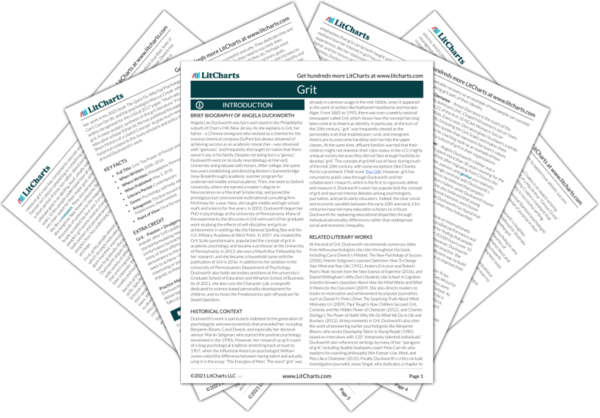Like West Point, the National Spelling Bee is another high-pressure setting where performance is both extremely important and very easy to measure. This made it a perfect setting for Duckworth’s experiment. Again, Duckworth found not only that grit predicts success, but also that inherent ability
doesn’t. This leads to the crucial distinction that she draws at the end of this introductory chapter: people might have varying levels of potential, but their achievement depends on “
what [they] do with” that potential. In other words, grit is the factor that enables people to translate their potential into performance.


